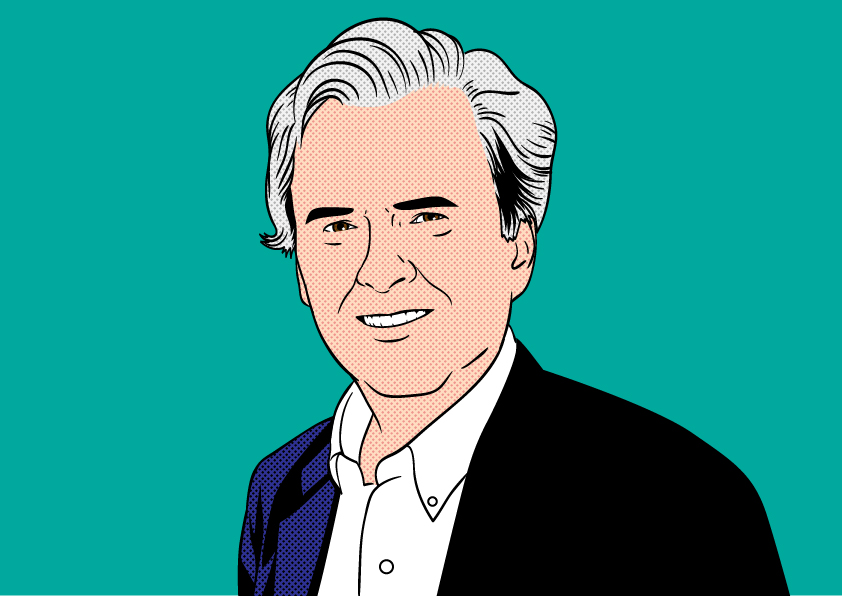The Florida Governor and Cruising’s Return: The Pound Sand Chronicles
By Robert McGarvey

Florida Governor Ron DeSantis cannot have it both ways when it comes to the return of cruising. He is trying but he won’t succeed.
And he is threatening the vacation plans of many of us who had looked forward to the resumption of safe cruising.
DeSantis – pursuing political agendas that lack commonsense but in an era of alternative facts such has become something of a norm – now has some big players in the industry close to telling him to go pound sand.
Back in early April Florida, at DeSantis’ direction, filed suit against the CDC demanding an immediate resumption of cruises. “We don’t believe the federal government has the right to mothball a major industry for over a year based on very little evidence and very little data,” DeSantis said in a news conference at Miami’s seaport.
DeSantis of course wants cruising back because Florida wants the money it produces for the state. Some $9 billion annually is brought in by cruise lines in Florida and many millions more in paychecks for cruise employees and DeSantis, presumably blinded by the glitter of so much gold, simply no longer sees the many thousands of Covid-19 deaths that hit the cruise industry in the first half of 2020 and the tens of thousands of cases.
He may think there is little evidence and less data but he simply is wrong.
But saying DeSantis is a demagogue with no respect for facts hardly is news or even interesting. What is interesting is that when the return of cruising to his state has become imminent he has thrown a spanner into the ships’ engines mainly because he wants to be seen as a “courageous” campaigner against forced vaccinations.
Idiocy? Of course. But this is special stupidity because it might actually prompt many cruise lines to pull out of Florida and shift their home ports into friendly Caribbean nations that, you bet, will do what needs doing to build up their cruise related income.
Flashback a year ago and I thought I’d never cruise again. The industry’s handling of the virus was inept, mendacious, and deadly. But now the CDC has issued guidance designed to get cruises safely sailing again. Masks are required, shore excursions are tightly controlled, and in lots of ways cruising will be different.
But a reality – understood by many cruise executives, even if politicians do not get it – is that many of us were not going to cruise again unless significant steps were taken to assure the safety and health of passengers and crew alike.
In that vein many cruise lines now promise all crew will have been vaccinated and ditto passengers. Here’s a list of lines requiring passengers to be vaccinated and, yes, this includes most of the ships an American is likely to sail on.
I applaud this decision and I realize it is driven by economics. The data just had become overwhelming that a vaccine requirement is a sine qua non for a return to cruising.
But not if DeSantis has his way. You will remember we left the governor as he filed suit against CDC demanding a green light for cruising.
I don’t know that you can say CDC had issued a green light but it definitely turned off the red and the light now is amber. Do as CDC asks and a line can sail. And a line can do it faster if it requires a high percentage of passengers be vaccinated. Are the requirements onerous? Yes. But desperate and dangerous times call for dramatic measures.
And yet DeSantis now has taken steps to ban businesses in Florida from requiring vaccination passports from customers. “It’s completely unacceptable for either the government or the private sector to impose upon you the requirement that you show proof of vaccine to just simply be able to participate in normal society,” DeSantis said at a press conference.
He means for that ban to apply to cruise ships. Some lawyers argue – and they probably are right – that what the ships do is a federal matter, outside the purview of a governor. But already Norwegian Cruise line is threatening to pull its ships out of Florida and sail out of those Caribbean ports we mentioned earlier.
“Cruise ships have motors, propellers and rudders, and god forbid we can’t operate in the state of Florida for whatever reason, then there are other states that we do operate from,” said Norwegian CEO Frank Del Rio. “And we can operate from the Caribbean for ships that otherwise would’ve gone to Florida.”
Meantime, Carnival, the largest cruise line, now says it wants to start sailing from Florida in July – if it can reach an accord with CDC which has said it will relax some restrictions for ships where virtually all crew and passengers are vaccinated. Carnival has plainly indicated it is prepared to deal with CDC. “We continue to have constructive discussions with the CDC but still have many questions that remain unanswered. We are working diligently to resume sailing in the U.S. and meet the CDC guidelines,” Christine Duffy, president of Carnival Cruise Line, said in the statement.
No mention is made of DeSantis and his attempt to outlaw vaccination passports in Florida.
Let’s review. DeSantis has a fit and sues CDC to end its ban on cruising because of the adverse economic impacts on Florida, the nation’s biggest cruise port. CDC modifies its orders, the cruise lines decide they can work within the new rules and – to solidify passenger confidence – they decide to require vaccinations of passengers and crew. And now DeSantis says a business cannot require vaccination passports of its customers.
Which means many won’t feel comfortable cruising, especially not if the ships are welcome zones for wacky anti vaxxers.
If DeSantis gets his way, just forget about cruising from Florida.
Sigh. I said it earlier but it’s worth repeating: Go pound sand, DeSantis.

